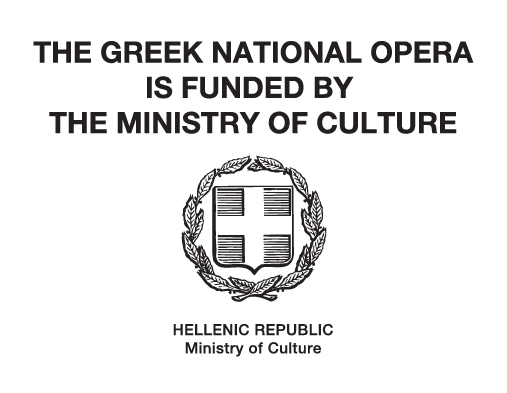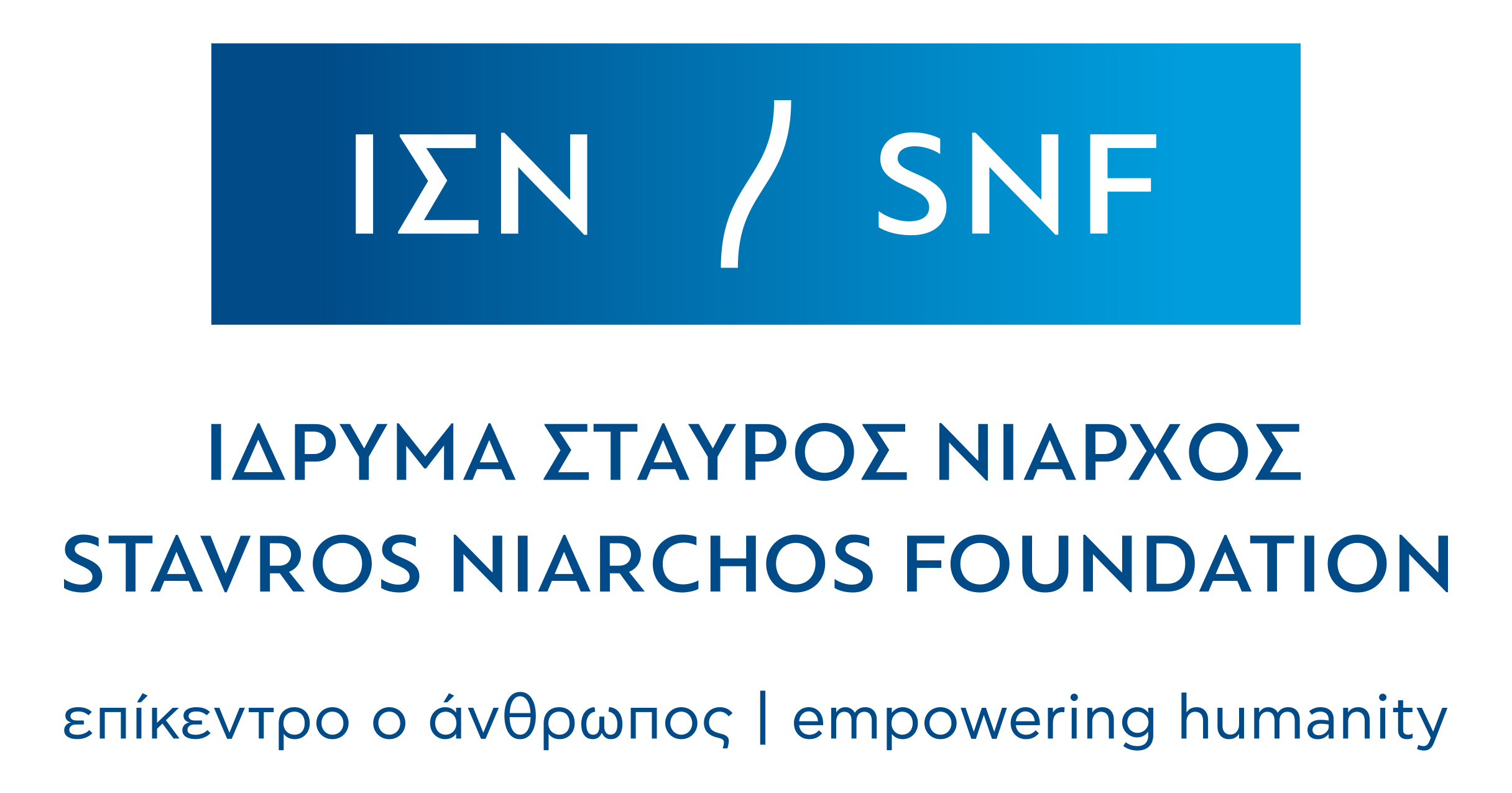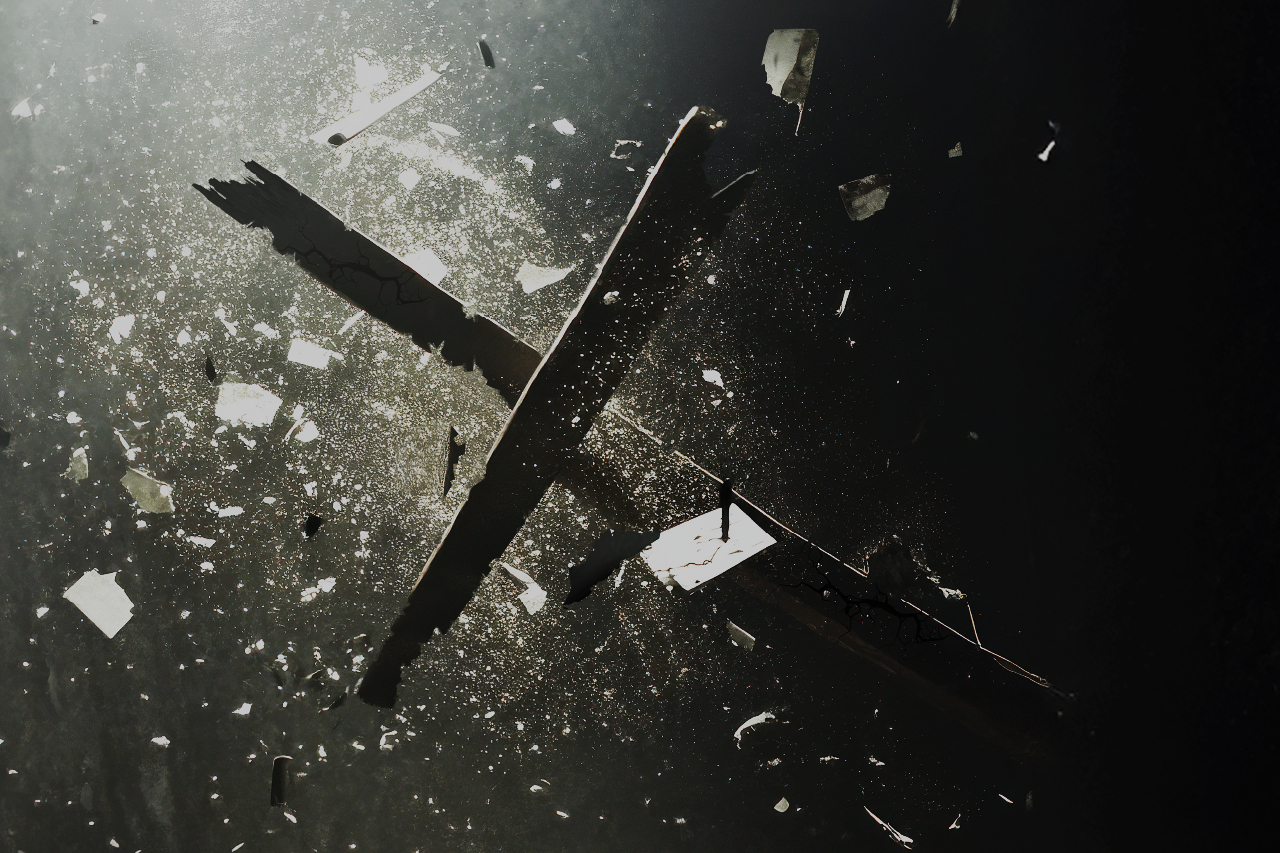
Lead Donor of the GNO

Production sponsor

La forza del destino is making its comeback to the Greek National Opera after 27 years of absence. Giuseppe Verdi's iconic opera will debut in the Stavros Niarchos Hall at the SNFCC on 26 and 29 January and on 2, 6, 9, 12, 15 and 18 February 2025 in a production conducted by Paolo Carignani and directed by Rodula Gaitanou, featuring Dimitri Platanias, Cellia Costea, and Marcelo Puente in the leading roles.
Just a few notes from the Overture of La forza del destino are all it takes to convey the mesmerising quality of Italian opera and reveal the grandeur of Giuseppe Verdi's musical genius. The renowned composer's masterpiece is full of melodious arias and duets while maintaining a wondrous balance between tragic and dramatic elements on the one hand and a comic flair on the other. Along with the three main characters -Leonora, her brother, Don Carlo, and her beloved, Don Alvaro- the chorus plays a leading role in the extensive crowd scenes.
La forza del destino was written at a time when Verdi was already a famous and established composer. Just as in Il trovatore and Don Carlo, Verdi continues his exploration of Spanish themes in La forza del destino, as Spain has always been a timeless source of inspiration for him. The opera is based on Ángel de Saavedra's play Don Álvaro o la fuerza del sino (Don Álvaro or The Force of Destiny), while also drawing upon the first part of the drama trilogy Wallensteins Lager (Wallenstein's Camp) by Friedrich Schiller, a work dedicated to General Albrecht von Wallenstein.
Verdi was commissioned to write the opera by the Imperial Theatre in Saint Petersburg, where the opera was eventually staged on 10 November 1862. After that, it was presented in numerous places worldwide, from Madrid and Vienna to New York and Buenos Aires. For each new staging, Verdi made revisions to the score. In 1869, La forza del destino was performed, with a new overture and a new finale, at La Scala, Milan. On this occasion, the composer gave the opera what is now considered its final form. In 1882, the composer signed its last and most simplified version in French, concluding his creative process after a tumultuous period that lasted more than two decades and defined his compositional career. Hidden within the opera, which explores the power of fate and destiny, is a destiny of its own - a journey full of challenges, failures, changes, and triumphs.
The story begins with a lovestruck couple, Don Alvaro and Leonora. Leonora has decided to elope with him, although she is well aware that her father, the Marquis of Calatrava, strongly opposes their relationship. However, the plot takes an unexpected turn when Don Alvaro accidentally kills the Marquis. The two lovers are forced to separate, while Don Carlo, Leonora's brother, swears to take revenge for his father's death. Several years later, Carlo and Alvaro meet by chance. They are both unaware of each other's true identity. After a line of earthshaking events, the two men fight each other in a duel, in which Alvaro delivers a fatal strike to Carlo. Leonora arrives to take care of her brother, yet he stabs her in the heart.
The Greek National Opera first mounted this opera at the old Olympia Theatre, Athens, in 1954, marking the company's relaunch after a months-long interruption due to a cut in state funds. Two more stagings followed: at the Odeon of Herodes Atticus in 1970 and at the new Olympia Theatre in 1981, respectively. The last time it was presented by the GNO was at the Odeon of Herodes Atticus in 1998.
Twenty-seven years later, La forza del destino is coming back to the Greek National Opera in a new, highly ambitious production carrying the signature of a team of world-class creatives. Internationally acclaimed Greek opera director Rodula Gaitanou is responsible for the stage direction, George Souglides designed the sets and costumes, Dimitra Kastellou was in charge of the movement, Giuseppe di Iorio handled the lighting, and Dick Straker created the videos.
Assisted by her creative team, Gaitanou chose to set the action in the early 20th century, referencing the two World Wars. The heroes' story unfolds alongside the progression of the war. In line with the chiaroscuro aesthetic, the performance -balancing light and shadow- maintains the necessary realism while also using symbolisms to achieve poetic freedom. The concept of «destiny» is portrayed on stage through the emphasis on war's horrific nature and its dramatic impact on people, as well as through references to works by Theo Angelopoulos, Michelangelo, and Hieronymus Bosch.
As the director notes: «La forza del destino is a story about an original sin, which perpetuates and defines the actions and choices of the members of a dysfunctional family to the very end. It is also an exploration of the consequences of psychological traumas, obsessions, and the power of revenge. The story is set before, during, and after the end of a war. The desire to destroy the opponent, hostility, misanthropy, and the horrors that come with war, as well as the need to survive, draw parallels to one of the plot's major lines: the hatred expressed by Don Carlo, who wants to take revenge for his father's death. Therefore, the story can be read on two levels: inner turmoil is reflected in external chaos, increasing in both scale and intensity. The trajectory of the three main characters ultimately leads to a frantic pursuit of personal peace and redemption.»
Rodula Gaitanou returns to the GNO ten years after two successful stage directions of Cinderella and Cos? fan tutte at the Olympia Theatre, in 2013 and 2014, respectively. She is considered as one of the most inspired opera directors of the younger generation. Her work has been showcased at venues such as the Royal Opera House in London (Linbury Studio) and the Opera Houses of Gothenburg, Oslo, Trieste, Liège, Bergen, and Lisbon. She has also been featured in festivals such as those in Savonlinna, Spoleto, and Wexford, along with various other opera houses in America and Asia.
Following his compelling conducting in GNO's recent production of Nabucco, presented at the Odeon of Herodes Atticus in the summer of 2023, renowned Italian conductor Paolo Carignani is back to lead the musically and performatively challenging opera La forza del destino. Carignani has established a remarkable international career, frequently collaborating with world-class venues such as the New York Metropolitan Opera, the Vienna State Opera, La Scala in Milan, the Berlin State Opera, the Deutsche Oper Berlin, the Bavarian State Opera, the San Francisco Opera, the Gran Teatre del Liceu in Barcelona, the Concertgebouw in Amsterdam, the Royal Opera House in London, the Bastille Opera, the Oslo Opera, as well as other locations in Brussels, Antwerp, Glyndebourne, and more.
In the leading role, loaded with tremendous vocal and interpretative demands, we will have the chance to enjoy three top-tier, internationally celebrated soloists. Cellia Costea, the remarkable soprano from the GNO, known for her successful career on the international stage, will perform as Leonora. Making his debut in the role of Don Carlo will be the Greek baritone of international fame Dimitri Platanias. Distinguished Argentinian tenor Marcelo Puente, known to the GNO audience from his performances in Andrea Chénier and Don Carlo, will portray Don Alvaro. Puente has already successfully performed this role in Zurich, Dresden, and Cologne. The bass from the GNO Petros Magoulas will take on the roles of the Marquis of Calatrava and Padre Guardiano, Belarussian mezzo-soprano Oksana Volkova will perform as Preziosilla, and the bass from the GNO Yanni Yannissis will embody Fra Melitone. Accompanying them on stage will be Ioanna-Vasiliki Koraki, Georgios Papadimitriou, Yannis Kalyvas, and Maxim Klonovskiy.
The GNO Chorus will be conducted by Agathangelos Georgakatos.
SPEECH BEFORE THE PREMIERE
On Sunday, 26 January 2025, at 17.30, one hour before the start of the premiere, Piraeus Bank, the production sponsor, and the GNO will present a speech about La forza del destino by Helena Matheopoulos. The event will take place in the VIP Hall on the first floor of the GNO's foyer at the SNFCC. The distinguished author and journalist will discuss the adventure of this work's composition, the revisions made to its libretto, its famous Overture, the musical and dramatic challenges of the leading roles, its renowned arias, and the enduring fame this opera has garnered.
Giorgos Koumendakis, the GNO's Artistic Director, and officials from Piraeus Bank will deliver addresses.
Admission will be free for the public.
Advance ticket reservations: https://www.ticketservices.gr/event/gno-i-dynami-tou-pepromenou-omilia/?lang=en












